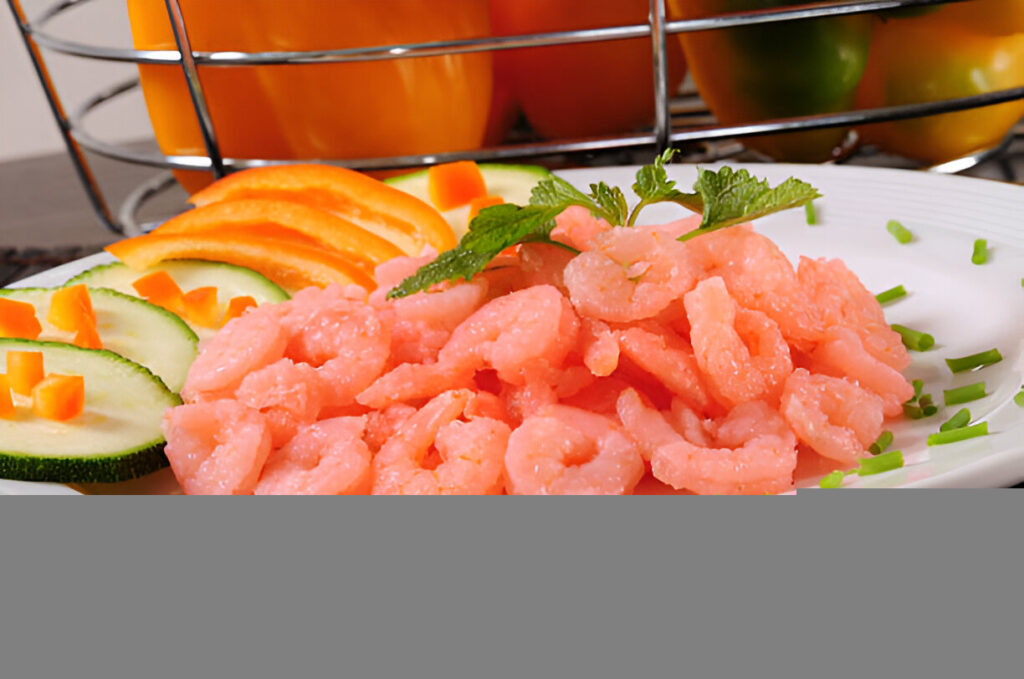When it comes to healthy seafood choices, pink shrimp often fly under the radar — but they absolutely deserve a spot on your plate. These small, tender crustaceans are packed with powerful nutrients, low in calories, and offer a delicious way to boost your overall well-being. Whether you’re a seafood enthusiast or simply looking to add more nutritious options to your meals, pink shrimp are a smart, flavorful choice.
If you’re considering adding more seafood to your diet, pink shrimp should be at the top of your list. Their mild, slightly sweet flavor pairs easily with countless dishes, and their health benefits make them an ideal choice for anyone focused on wellness. Plus, fresh or frozen pink shrimp are easy to find at most grocery stores and seafood markets, often at very affordable prices. Whether you’re preparing a light salad, hearty pasta, or a simple grilled skewer, having pink shrimp in your kitchen opens the door to quick, nutritious meals that taste amazing.
Let’s dive into the top 5 health benefits of eating pink shrimp and why they should become a staple in your diet.
1. High in Lean Protein
Protein is an essential nutrient for building and repairing tissues, and pink shrimp are an excellent source of high-quality, lean protein. A 3-ounce serving of cooked pink shrimp provides about 20 grams of protein with minimal fat content.
Unlike red meats that are often higher in saturated fats, pink shrimp deliver the muscle-building power of protein without the associated health risks. This makes them an ideal protein choice for athletes, fitness enthusiasts, or anyone looking to maintain a healthy weight. Plus, the high protein content helps keep you feeling fuller for longer, curbing unhealthy snacking between meals.
2. Rich in Key Vitamins and Minerals
Pink shrimp are loaded with important vitamins and minerals that your body needs to function optimally. Some of the standout nutrients include:
- Vitamin B12: Essential for nerve function and the production of red blood cells.
- Selenium: A powerful antioxidant that supports the immune system and helps protect against cellular damage.
- Phosphorus: Crucial for healthy bones and teeth.
- Choline: Important for brain health and cognitive function.
These nutrients work together to boost energy levels, support metabolism, and promote overall vitality. By including pink shrimp in your diet regularly, you’re giving your body a strong nutritional foundation.
3. Supports Heart Health
Eating pink shrimp can be a heart-smart decision. Although shrimp has historically been misunderstood due to its cholesterol content, recent research shows that shrimp’s cholesterol has a minimal effect on blood cholesterol levels for most people. Instead, the omega-3 fatty acids found in shrimp actually help improve heart health.
Omega-3s help reduce inflammation in the body, lower blood pressure, and decrease the risk of heart disease. Additionally, shrimp are low in saturated fat, making them an excellent protein choice for individuals focusing on cardiovascular wellness.
Choosing wild-caught or sustainably farmed pink shrimp can maximize your intake of these beneficial nutrients while supporting environmentally responsible practices.
4. Low in Calories but Full of Flavor
One of the best things about pink shrimp is that they are naturally low in calories — a 3-ounce serving contains roughly 85–100 calories. Despite being low in calories, pink shrimp are rich in flavor, making them a satisfying addition to meals without adding excessive caloric intake.
This makes pink shrimp a great option for those trying to lose weight, maintain a healthy weight, or simply enjoy nutrient-dense foods. Plus, their versatility means you can enjoy them grilled, sautéed, boiled, or tossed into salads without needing heavy sauces or breading that can add unnecessary calories.
Simple seasoning with lemon, herbs, and a touch of olive oil can bring out the shrimp’s natural sweetness and make for a delicious, guilt-free meal.
5. Boosts Brain Health
Pink shrimp offer nutrients that specifically support cognitive function and brain health. The combination of vitamin B12, choline, and omega-3 fatty acids found in shrimp has been linked to improved memory, better focus, and even a reduced risk of age-related cognitive decline.
Choline, in particular, plays a major role in brain development and neurotransmitter production, which affects mood and memory. Regular consumption of shrimp can therefore contribute to maintaining mental sharpness, particularly as you age.
By adding pink shrimp to your regular diet, you’re not just feeding your body — you’re also nourishing your brain for long-term health.
Conclusion
Pink shrimp are a small seafood powerhouse packed with big benefits. From being a high-protein, low-calorie food to supporting heart and brain health, these delicious crustaceans make an excellent addition to a balanced diet. Whether you’re grilling them, tossing them into a salad, or featuring them in a pasta dish, pink shrimp can elevate both the flavor and the nutritional value of your meals.
When shopping, look for wild-caught or sustainably farmed pink shrimp to ensure you’re getting the highest quality product with the best environmental practices.
Ready to enjoy all these health benefits and add a delicious, nutritious option to your plate? Pick up some pink shrimp today and start cooking up something healthy and delicious!

